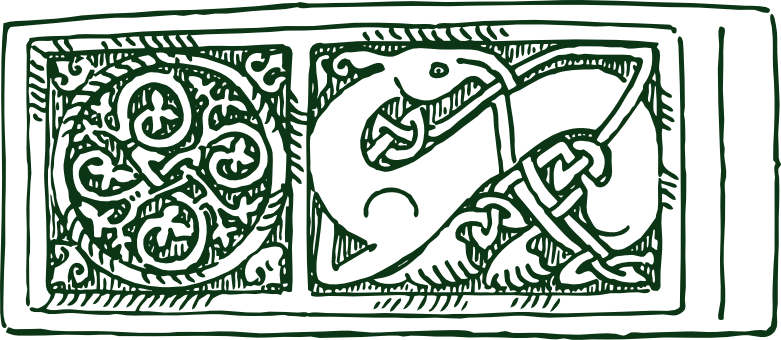Christoph Otte (Winner of the Truckell Prize, 2015)
On 10 March 2017, Chris Otte, who won the Truckell Prize in 2015, gave a talk giving a brief overview of his prize-winning paper.
The early medieval history has been understated in recent years and using place-names could help establish settlement chronologies. For example, Brittanic place names probably predate Scandinavian and Old English names ending in -ham (farm) belong to the earliest Anglo-Saxon settlements whilst Scandinavian names ending -periet (cleared land) were most likely formed during later agricultural expansion. The distribution of archaeological remains can also be used.
The second step was to create an 'Agricultural Potential Methodology'. Using pre-industrial-revolution estate plans Christoph assigned one of three values — arable, pasture, meadow — to each area and, using a formula that 7 Ha of arable land would feed five people, made an assessment of the land capacities of the parishes of Moffat, Lochmaben and Annan.
A second case-study focused on the Barony of Ericstane, possibly created in the twelfth century so that upper Annandale with its fertile lands could complement the vast pastoral tracks of Evandale.
The third case-study looked at the farm pairings Palmoodie/Carrifran, Bodesbeck/Copplegill and Craigieburn/Crofthead in Moffatdale. Each pair is linguistically consistant; the first Gaelic, the second Scandinavian and the third Scots and each pairing refers to a hill and a body of water.
The pattern is probably not arbitrary but is as a result of a reorganizing of farm ownership which happened between 1100 and 1318. It could not have happened before 1100 because the late nature of the early and middle Scots place-names would not have been encountered earlier nor later than 1318 because Poolmaddie was recorded in 1318.
